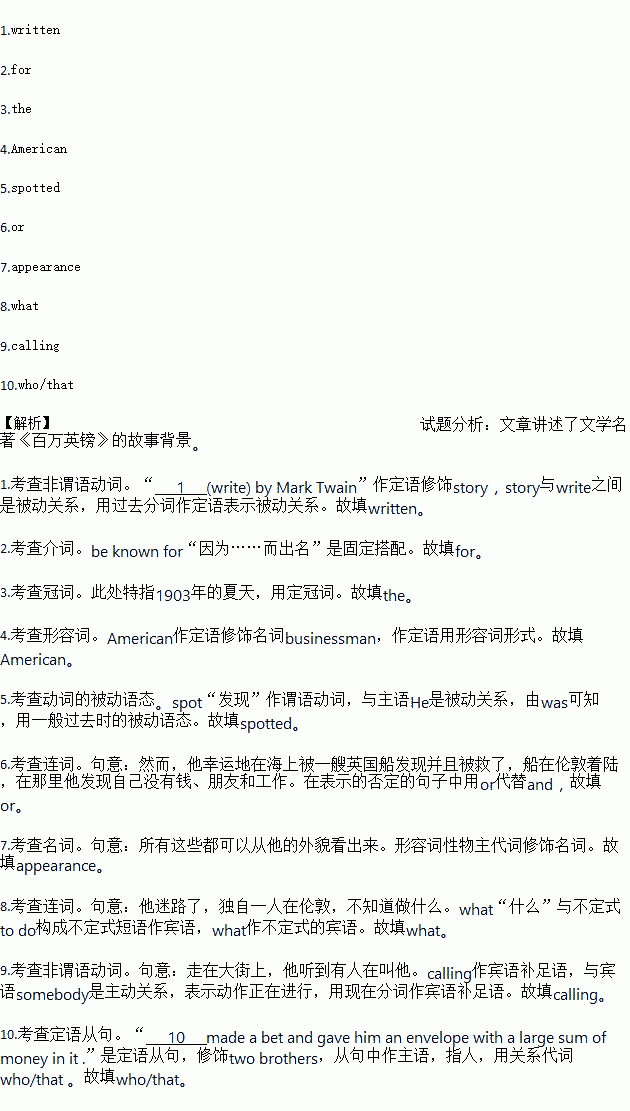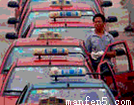题目内容
The play “The Million Pound Bank Note” is based on a short story 1.(write) by Mark Twain, who was brought up in Hannibal, Missouri, and is best known 2. his novels, such as The Adventure of Tom Sawyer and The Adventure of Huckleberry Finn. The story happened in 3. summer of 1903, and Henry Adams, an 4. (America) businessman had some bad luck to be carried out to sea by a strong wind. However, he was 5. (spot) and rescued at sea luckily by a Bri tain ship and landed in London, where he found himself without money, friends 6. a job. But he had to earn his living, which could account for (解释...的原因) his 7. (appear). One day when he was wandering on the pavement and didn’t know 8. to do, he heard somebody 9. (call) him. Then he was led to two brothers 10. made a bet and gave him an envelope with a large sum of money in it .
tain ship and landed in London, where he found himself without money, friends 6. a job. But he had to earn his living, which could account for (解释...的原因) his 7. (appear). One day when he was wandering on the pavement and didn’t know 8. to do, he heard somebody 9. (call) him. Then he was led to two brothers 10. made a bet and gave him an envelope with a large sum of money in it .
| Guitar lessons Your home or mine. Call Larry at 6087593. |
| Lost dog |
| Taxi driver wanted. Full time. Experience and good knowledge of the city are necessary. Under 45 years old. Call Mr. White at 5132633 or 13935728866. |
| Apartment for sale Two bedrooms, a kitchen and a bathroom. Hot water 8:00 - 18:00. Beautiful sights out of the windows. E-mail: sdgt@ 163.com. |
1.Who can teach children to play the guitar?
A. David. B. Larry.
C. Mr. White. D. Susan.
2.Which number should you call at if you find the lost dog?
A. 6087593. B. 5132633.
C. 7328059. D. 13935728866.
3.Which of the following people may get the job as a taxi driver?
A. A 50-year-old person.
B. A person who has just got his driver’s license.
C. A 40-year-old person who can drive well in the city.
D. A person who can drive and has free time on weekends.
4.When is hot water provided in the apartment according to the ad?
A. At night. B. In the daytime.
C. At any time. D. Only in the afternoon.
5.How can you contact the owner of the apartment for more information?
A. By making a phone call. B. By going to visit it.
C. By sending a letter. D. By sending an e-mail.





